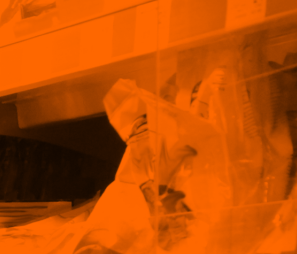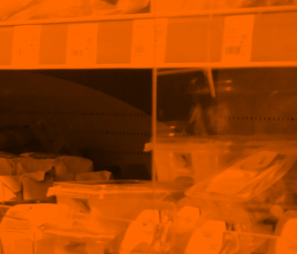Strong Markets for Cultured Meat Across Meat-Reducing Germany and France : For the first time ever, the majority of Germans are limiting their consumption of meat, and many are open to the concept of eating cultured meat, according to a new study.
The research, published in the journal Foods by an international research team from the University of Bath (UK), Université Bourgogne Franche-Comté (France), and Ipsos (Germany), finds that there is growing acceptance of non-meat diets, both in Germany and France – although a strong sense of tradition and culture still hold sway in terms of attitudes, particularly in France.
For the study, researchers surveyed 1,000 people in each country, asking them a series of questions about their current and intended dietary habits, as well as about their thoughts on cultured meat – i.e., meat produced without raising and slaughtering animals. This new method of meat production mirrors the biological process of building muscle tissue but does so under strictly controlled conditions.
Their analysis found that just 45% of German respondents identified as full meat-eaters, with a further 31% now actively following flexitarian or reduced-meat diets. Meat consumption was more common in France, where 69% identified as full meat-eaters, with 26% following a flexitarian diet.
The research also reveals promising markets for cultured meat in both countries. Although the majority of consumers in France and Germany had still not heard of cultured meat, 44% of French respondents and 58% of German respondents said that they would be willing to try it, with 37% of French consumers and 56% of Germans willing to buy it themselves.
The publication highlights Germany as one of the most vegetarian nations in Europe, noting that per-capita meat consumption has been trending down for several decades. Now, for the first time, evidence suggests that German consumers who are not deliberately limiting their meat consumption are in the minority. These patterns are mirrored in France, where almost half of meat-eaters intend reducing their consumption of animal-based products in the future, although attitudes in the population as a whole are harder to shift.
The researchers say that the social implications of these findings could be profound. Lead author, Christopher Bryant from the Department of Psychology at the University of Bath, explains: “We know that the social normality of meat consumption plays a large role in justifying it. Now, we are approaching a tipping point, where the majority of people are deciding that, primarily for ethical and environmental reasons, we need to move away from eating animals. As eating animals becomes less normal, we will likely see a rise in demand for alternatives such as plant-based and cultured meat.”
Strikingly, the team found that the acceptance of cultured meat is higher among agricultural and meat workers in both France and Germany – two countries that are considered to be the strongest agricultural powers in the European Union. The team behind the study say that this indicates that farmers may see cultured meat as a way to address the mass demand for affordable meat, enabling them to move away from intensive industrial-production systems and return to more traditional systems which are more harmonious with environmental and animal welfare outcomes. In the US and in Europe, some of the world biggest meat producers have already backed and partnered with cultured-meat innovators. These include industry giants such as Cargill, Tyson Foods, PHW, the largest German poultry breeder and processor, and M-Industry, which is part of the Swiss Migros Group.
The team found some evidence that pro-cultured-meat messages which focus on antibiotic resistance and food safety were more persuasive than those that focused on animal welfare or the environment. Consumers also indicated that they would be more likely to consume cultured meat that is not genetically modified.
Study author, Nathalie Rolland, noted, “We can expect to see an increase in interest in novel proteins, including cultured meat. We now know that increased familiarity with the concept of cultured meat tends to make people more comfortable with the idea of eating it. Also, it’s worth pointing out that this data was collected before the outbreak of COVID-19, a zoonotic disease which has caused many people to re-examine the role of animals in our food system.”
Jens Tuider, International Director of ProVeg International, said, “Antimicrobial resistance is a serious public-health issue, caused mainly by the widespread use of antibiotics in conventional animal agriculture. Globally, more than 70% of antibiotics are used on animals in intensive farming, dramatically decreasing the efficacy of antibiotics intended for humans. This represents a serious threat to global public health, with a projected death toll from antibiotic-resistant diseases of 10 million people per year by 2050. Since cellular agriculture has no need for antibiotics, it could significantly mitigate against this major risk to public health.”
The research posits that some of the differences observed between France and Germany might best be explained through the lens of culture and tradition. However, they note the role that agricultural lobbies continue to play in France. This includes the French decision in 2018 to ban the use of ‘meat terms’ to describe vegetable-based products such as vegetarian sausages or vegetarian steaks. The law is ostensibly designed to avoid misleading consumers, although, in 2019, the UK’s House of Lords disagreed, saying that these changes would make things more confusing for consumers, not less so.
While this study focused on France and Germany, lead researcher Chris Bryant argues that the findings could have implications elsewhere. He adds: “Europe still has lower rates of vegetarianism compared to other parts of the world. If these surveys were repeated in other regions, we would expect to see even higher rates of meat reduction. The normality of meat-eaters being the majority is reversing, as more people move towards plant-based diets. The development of improved alternatives, including cultured meat, will only make this transition easier.”
Manufacturing & Engineering Magazine | The Home of Manufacturing Industry News















